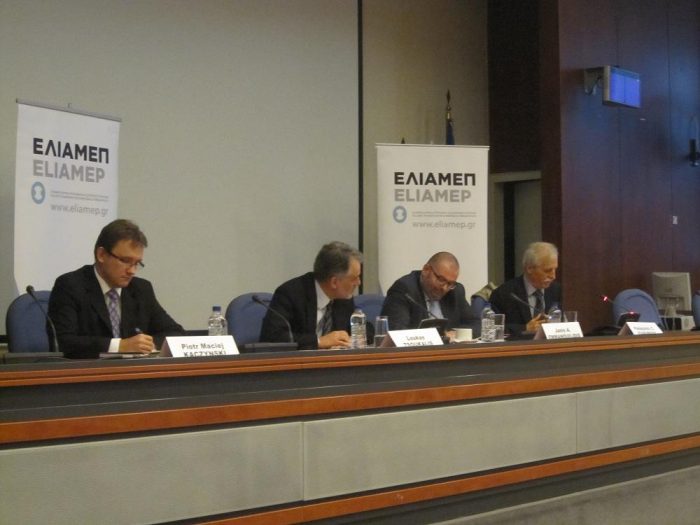The Lisbon Treaty came into effect in 2009, as the end-result of a long process that started eight years ago with the negotiations for a European Constitution. The main goals are to increase the effectiveness of EU policy-making, to raise the visibility of the EU in the global scene and finally to enhance the legitimacy of the Union in the eyes of its citizenry. These broad targets are served by the Treaty through a number of important measures including the reform of the office of the High Representative of the EU, the formation of the External Action Service as the Union’s diplomatic corps, the appointment of a permanent President of the European Council and the significant strengthening of the European Parliament’s mandate.
One year on and in the light of the global financial crisis that in 2010 turned ‘European’, the question is how successful the Lisbon Treaty has been and to what extent it has provided the Union, the tools to deal with the challenges ahead? This was the topic of the discussion organised by ELIAMEP, which took place on 28 January, at the Y. Kranidiotis Amphitheatre, Ministry of Foreign Affairs (1, Akadimias Street), with the participation of Mr. Janis A. Emmanouilidis (Senior Policy Analyst, European Policy Centre (EPC)), Prof. Panayiotis C. Ioakimidis, (University of Athens) and Dr. Piotr Maciej Kaczynski, (Research Fellow, European Policy Studies (CEPS)), moderated by Prof. Loukas Tsoukalis, (President of ELIAMEP).
The year 2010 has been marked by the spillover effect of the Greek financial crisis on the entire system of the EMU. This has been a crash-test for the Lisbon Treaty. All speakers agreed that the Lisbon Treaty has fallen short as a framework for action for the EU. In spite of the expectations created by the Treaty’s proponents, the financial crisis has caused a political domino in the EU bringing forward increasing mistrust between member-states as well as a certain reversion to nationalistic policies. The Lisbon Treaty did not foresee these developments and does not provide the EU with the adequate framework to deal with them. Nevertheless, one year is certainly a short period to allow for absolute positions in favour or against the Treaty. While amendments are necessary and will take place, the Lisbon Treaty is likely to remain the main institutional instrument for the EU in the upcoming years.
The European Parliament has certainly emerged out of the new Treaty as a definite winner, having become the Union’s co-legislator along with the Commission. Those two institutions are playing the role of the “guardians of the Treaties”. For the Commission, which has experienced a gradual weakening over the years due to higher diversity, changing balance of power between member states and the lack of legitimacy, this is a path that can lead to a more consolidated role within the new institutional map. Nevertheless, it is not clear how far the Parliament’s institutional ‘upgrading’, has increased its legitimacy in the eyes of European voters. Moreover, the simultaneous strengthening of the Council with a semi-permanent President that the Parliament has no means of holding accountable will maybe lead to a new institutional balance.
Similarly, the institutional empowerment of the role of the Higher Representative has not, for the time being, led to a common EU foreign policy and a single representation to the international fora. This is not likely to occur as long as the activities towards the Higher Representative are at least supported by a team of Deputies as well as a fully functioning External Action Service, which only initiated its activities at the end of 2010. Its close cooperation with national diplomatic services, the Commission and the Council can pave the way for its successful role. In a different case, it runs the risk of becoming antagonistic, and be seen, as it already has been partly regarded, as just an additional European institution.
The Treaty of Lisbon has created and consolidated an institutional ‘quad’. Whether it will swift the balance, however, towards further supranationalism or integovernmentalism does not only depend on institutional provisions. Political choices and actions of the key-holders are crucial, especially in the post-Lisbon arena where EU and national competences are increasingly blurred. There can only be one definite conclusion. While the Treaty of Lisbon does not offer a sufficient answer regarding the current global challenges, it remains the main available tool for the EU, which still requires higher political will by its member-states.




